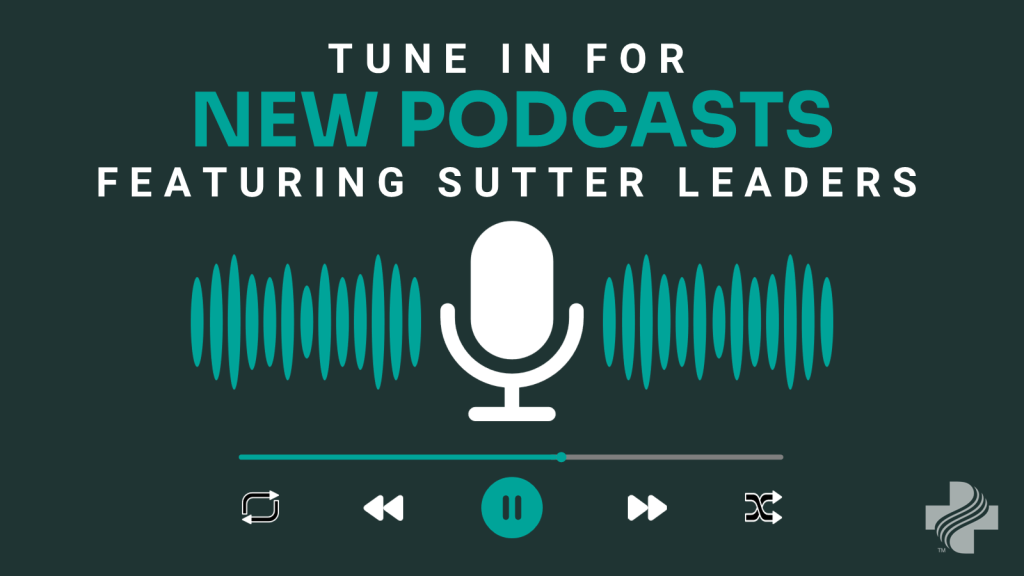When was the last time you had a hug or felt the comforting touch of a loved one? Maybe it’s been months since you shook a colleague’s hand or gave a warm embrace to a friend. Physical distancing continues to be an important public health tool in slowing the spread of COVID-19, but the lack of touch, for some, is a difficult byproduct of pandemic living.
The presence of positive, welcomed touch, like a hug or holding hands, has been shown to enhance immune function, improve sleep and reduce stress. So, what can those who live alone do during the pandemic, when everyone is physically distancing?
An integrative massage therapist recently discussed why touch is important and what people can do to get more of that sensation.
“The pandemic has limited how we touch,” says Laura Palmer, a certified massage therapist with Sutter’s Institute for Health & Healing. “There are no high fives, firm handshakes, hugs or pats on the back.”
Lack of Touch Can Be ‘Touchy’ for Those Not Getting It
For those living with family, a significant other or roommate, physical touch may not feel like it’s in short supply. But for those who live alone, or who have little to no in-person contact, missing the presence of touch is, well, tough.
Palmer explains that touch starvation, also known as “skin hunger,” means being deprived of physical contact. She says touch is integral to a person’s psychology and physiology.
There are thousands of sensory neurons per every square centimeter on the skin. “A person’s skin is so sensitive that it can detect even the slightest changes in pressure and temperature,” she says.
Going without touch can impact a person’s wellbeing.
Touch & Its Impact
Humans are social creatures, with touch being one of our five senses. Physical touch is also considered one of the five love languages.
Interestingly, our ability to touch starts in the womb around the eighth week of development.
“Once born, the sense of touch continues to grow and develop and is the first language we learn as infants,” says Palmer.
Research shows that lack of touch during infancy has adverse effects on behavior such as severe shyness, difficulty eating food and excessive crying. It is linked to our ability to thrive.
“Touch teaches us about the world around us and informs us about ourselves. It’s also unique because it’s both passive and active. Touch even ramps up production of the body’s natural painkillers dopamine and serotonin,” says Palmer. When dopamine is released, it combats stress, anxiety and depression, and it helps people feel pleasure, satisfaction and motivation. Touch also helps lower a person’s cortisol levels. Often thought of as a person’s fight-or-flight hormone, cortisol is a stress hormone that has a negative effect on the body’s blood sugar, digestion and immunity.
Sensory Solutions
Palmer says there are a variety of ways to incorporate touch into one’s health maintenance routines.
Therapeutic massage helps regulate the body and calms a person down. Self-massage, including rubbing your shoulders, hands and feet, can bring awareness to your body. Palmer says wrapping your arms around yourself in a bear hug for several seconds can provide immediate comfort.
Dry brushing is another form of touch. Using a brush made of natural fibers, Palmer suggests long, comfortable strokes on the arms and legs in a motion towards the heart. Dry brushing exfoliates the skin and both stimulates and invigorates it.
Tennis balls, massage balls and foam rollers also offer sensory stimulation for the body. Gently but firmly working these tools on areas and pressure points across the body help release tension.
“When your body is starving for sensory stimulation, it’s really starving to be aware. Cultivating mindfulness can bring attention to all senses of the body,” says Palmer. She suggests that activities like yoga are ideal for developing a relationship with touch. How you move your body can help mimic some of the same benefits of touch.
Palmer says there are a lot of ways to experience touch. “Even weighted blankets, which can mimic the effects of a hug, are a good tool when another human isn’t nearby,” says Palmer.
Because of the pandemic, we understand the value of touch more than ever before. While touch is limited for some right now, there are simple activities that can mimic the sensation.
Experiencing feelings of isolation or something more? Consult your doctor. The NAMI HelpLine is also accessible Monday through Friday, 10 am–6 pm, ET at 1-800-950-6264.
Note: This content is not intended to be a substitute for professional medical advice, diagnosis or treatment. Always seek the advice of your physician or other qualified health provider with any questions you may have regarding a medical condition. Never disregard professional medical advice or delay in seeking it because of something you have read on this website





